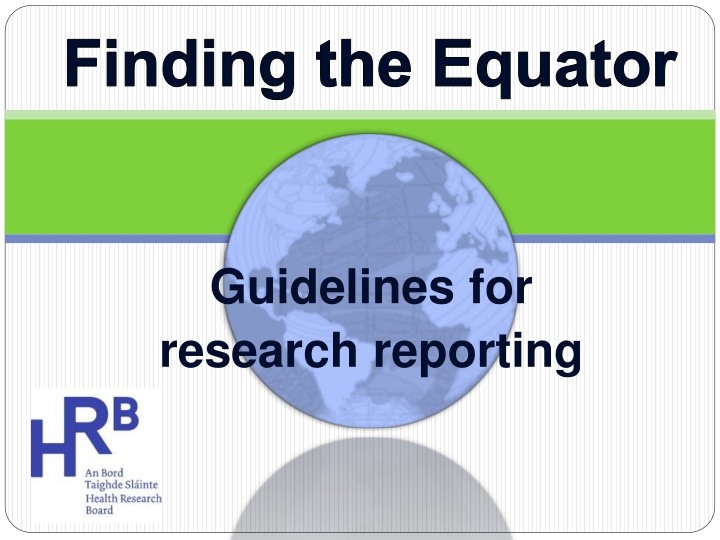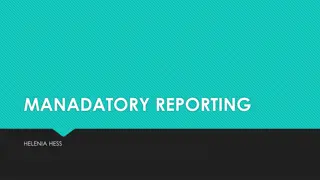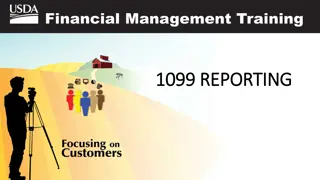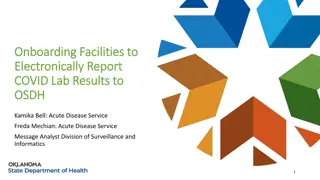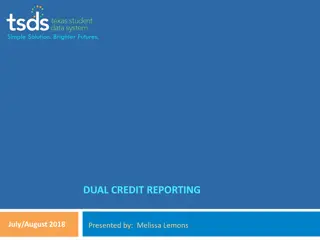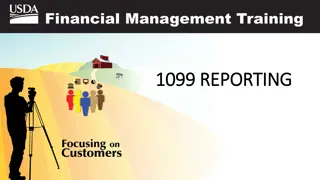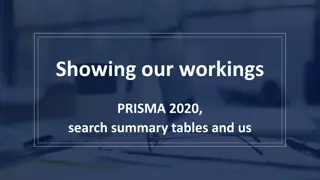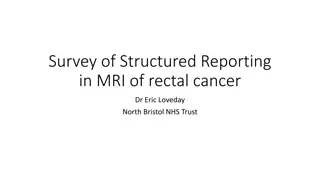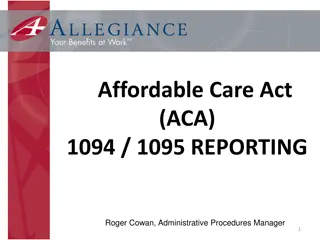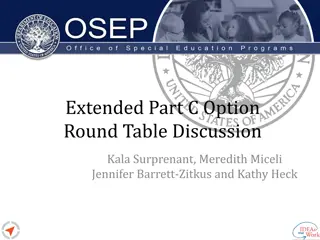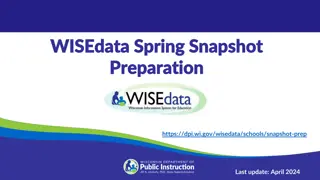Enhancing Research Reporting with Equator Guidelines
Understanding the importance of research reporting, this guide explores the impact of missing data, reporting bias, and librarian involvement in research integrity. Discover how reporting guidelines ensure transparency and reproducibility, with examples like PRISMA for systematic reviews. Access resources on the Equator Network website to find guidelines for various types of research studies.
Uploaded on Oct 08, 2024 | 0 Views
Download Presentation

Please find below an Image/Link to download the presentation.
The content on the website is provided AS IS for your information and personal use only. It may not be sold, licensed, or shared on other websites without obtaining consent from the author.If you encounter any issues during the download, it is possible that the publisher has removed the file from their server.
You are allowed to download the files provided on this website for personal or commercial use, subject to the condition that they are used lawfully. All files are the property of their respective owners.
The content on the website is provided AS IS for your information and personal use only. It may not be sold, licensed, or shared on other websites without obtaining consent from the author.
E N D
Presentation Transcript
Finding the Equator Guidelines for research reporting
Introduction Caitriona Lee, Information Specialist, Health Research Board
What data is missing? Risk of bias Search details Structured summaries Funding sources Protocol & registration
This is bad because Reporting bias Unusable/unfindable results Lack of transparency Research integrity issues
Is it a librarian problem? Librarians SUPPORT researchers Librarians ARE researchers Librarians USE research
Reporting guidelines Reporting guidelines provide the minimum set of information needed for a particular kind of study to be understood, replicated, critiqued, and used (Centre for Statistics in Medicine, University of Oxford)
Example: Systematic Reviews Reporting guideline for systematic reviews: PRISMA: Preferred Reporting Items for Systematic Reviews and Meta-Analyses
Where can I find guidelines? Equator Network Website: https://www.equator-network.org/
What types of research? Reviews: PRISMA, PRISMA-ScR Quality Improvement: SQUIRE Clinical guidelines: AGREE-II Case Reports: CARE Paediatric trials: CONSORT-C Economic Evaluations: CHEERS
Guideline assistance To choose a reporting guideline, try: The Equator Guideline Wizard The Equator Guideline Flowchart The searchable Equator website
Training is available! Classroom-based: https://www.equator- network.org/category/events/upcoming- events/ Online courses: https://www.equator- network.org/2018/08/17/equator-paho- online-course/
Next steps Suggest a reporting guideline to your library users Let them know about the Equator Network website Use a reporting guideline for your own research (and cite it!)
Conclusion Don t go to the ends of the earth to find research solutions, when the answer is at the Equator! www.equator-network.org
